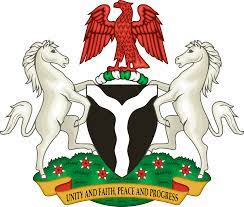According to Section 43 of the National Biosafety Management Agency Act, 2015, “genetically modified organisms” (GMOs) means any organism, living or non-living, that possesses a novel combination of genetic material obtained through modern biotechnology;
The Federal Government of Nigeria has agencies that regulate, develop and promote genetically modified organisms (GMOs) in Nigeria. Some of these agencies are also in partnerships with international organisations to promote the application of biotechnology.
With the growing controversies surrounding the acceptability and safety of biotechnology and its products, such as GMOs, the Nigerian public needs to be familiar with these biotech-related institutions so that they know how and to whom they may direct their inquiries, questions, comments, and reservations, particularly on issues of regulation and safety of approved genetically modified (GM) foods and their implications for the health of humans, animals, and the environment.
Regulators
- NBMA
The National Biosafety Management Agency (NBMA) is Nigeria’s sole authority on all biosafety matters. It is responsible for all approvals, licensing, withdrawals, and enforcing standards and guidelines on biosafety, biosecurity, and all biotechnology products, significantly genetically modified organisms (GMOs).
Therefore, agencies like the National Agency for Food and Drug Administration and Control (NAFDAC) and the Nigeria Centre for Disease Control (NCDC) lack the technical and statutory capacity to make pronouncements on biotechnology issues, including GMOs.
The NBMA applies risk assessment procedures and ensures the highest safety standards and strict procedures contained in the National Biosafety Management Agency Act of 2015 and the various regulations made under the Act.
- NACGRAB
The National Centre for Genetic Resources and Biotechnology (NACGRAB) is a Federal Ministry of Science and Technology department that operates the National Crop Varieties and Livestock Breeds Registration and Release Committee (The Committee) under the National Crop Varieties and Livestock Breeds (Registration, Etc.) Act.
According to Section 5 of the Act, The Committee shall, amongst other functions, be responsible for the following:
(a) receive and process applications for the registration, naming and release of old and new crop varieties and livestock breeds;
(b) officially release the list of superior crop varieties and livestock breeds recommended by any subcommittee established for that purpose;
(c) approve names for new crop varieties and breeds of livestock certified as new or distinct such that uniformity in nomenclature is ensured;
(d) render essential information on the released varieties of crops and livestock breeds, their outstanding characteristics, areas of adaptation and the location of the foundation of seeds or stocks of the released varieties and breeds;
Developers
- NABDA
The National Biotechnology Development Agency (NABDA) is Nigeria’s principal developer of biotechnology innovations and products. While it started its operations as an agency of the government since 2001, it was not until 2022 that it became a legal entity by the National Biotechnology Development Agency (Establishment) Act 2022.
The act empowers NABDA to, amongst other things, carry out research and development on biotechnology in priority areas of food, agriculture, health, industry, environment and other strategic sectors for national development and draw up programmes and policies for biotechnology utilisation in Nigeria; and promote, co-ordinate and deploy cutting edge biotechnology research and development activities in Nigeria.
- SHETSCO
The Sheda Science and Technology Complex (SHETSCO) in Abuja is empowered by
Section 5 (1) (c) (iii) of Sheda Science and Technology Complex Act,1993, to operate an advanced laboratory for pure and applied research in Biotechnology and Genetic Engineering. - NASENI
Section 2 of the 2nd Schedule of the National Agency For Science And Engineering Infrastructure Act (1992) provides that the agency shall operate as an institution responsible for research, development and commercialising its (NASENI’s) results in biotechnology. Promoters
Generally, the National Biotechnology Development Agency (NABDA) is the principal agency of the federal government of Nigeria that is statutorily empowered to promote biotechnology in Nigeria.
There is, however, a mixture of international organisations like the African Agricultural Technology Foundation (AATF) working with the Open Forum for Agricultural Biotechnology (OFAB) to deepen the public understanding, benefits and acceptance of the application of biotechnology to agriculture in Nigeria.
In June 2023, the Bill & Melinda Gates Agricultural Innovations (Gates Ag One) partnered with the African Agricultural Technology Foundation (AATF) to strengthen research aimed at improving staple crops grown by millions of African farmers.
There are also initiatives by local Nigerian non-governmental organizations (NGOs) such as the Citizens Advocacy for Social Economic Rights (CASER). Through its Food Avail Nigeria program, CASER promotes the rights of Nigerian citizens to benefit from biotechnological innovations, especially in agriculture, by its mandate under the United Nations’ International Covenant on Economic, Social and Cultural Rights.
Frank Tietie
Development Lawyer,
Executive Director of Citizens Advocacy for Social & Economic Rights (CASER) &
Convener of Food Avail Nigeria writes from Abuja.
















